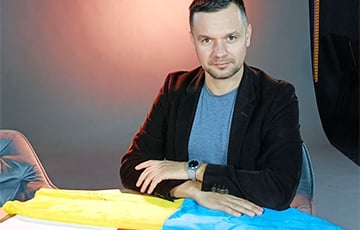Belarusian Factories Work For Russian Military-Industrial Complex
28- 14.02.2024, 11:41
- 16,816

Some of them work in three shifts.
Belarusian factories have turned into a conveyor belt of uninterrupted supply of military products for the needs of the Russian Federation. Already in 2022, the share of the Russian market in the export of the Belarusian military-industrial complex will reach 60%, says the report of the expert group of the Ukrainian Centre of Belarusian Communications, which they passed to Charter97.org.
Dozens of enterprises, employing many workers, work for the defence industry. It is there where the most attractive salaries, social package and bonuses are available today. Belarusians are given a simple choice - to live, barely making ends meet, or to work at the factories, which are "focused" on the war.
"Relatively decent salaries in the bank of vacancies for conventional fitters, moulders, opticians etc are offered only at the enterprises embedded in the military-industrial complex system. Moreover, the number of employees here is not only not limited, but also expands every month, which is due to the multiple growth of the orders.
According to the research of the Foreign Policy Council of "Ukrainian Prism", some defence enterprises of Belarus work in three shifts. For example, JSC "Peleng" was actively recruiting workers, and the enterprise itself had large orders for manufacturing Sosna-U gunner's sights, most of which were sent to Russia. In total, the plant produces sights for several types of tanks, as well as BMP-3 and its modifications. They have already announced their intention to commission two new production buildings in order to increase production capacity," experts say.
A significant increase in orders was also recorded at the Sfera optical plant of the MMZ named after Vavilov, as a result of which the enterprise was forced to postpone the fulfilment of some orders for the next year.
The "Zenit-BelOMO" enterprise, which manufactures optics, is also looking for additional staff. At the same time, the plant, apparently, also works in three shifts. The demand for staff replenishment is also experienced by "MZKT," the number of vacancies at which has doubled over the past six months. OJSC "AGAT Control Systems", OJSC "558 Aviation Repair Plant" and OJSC "Vorsha Aircraft Repair Plant" can also be added to this list.
And this is only a small list of companies that work under direct orders of the Russian Ministry of Defence. At the moment, Belarusian factories are processing orders for manufacturing and supplying units and modules for aircraft, armoured vehicles, multiple rocket launchers, chips and microchips necessary for the production of missiles, and so on. The Belarusian military industry is actually being transferred to the military rails.
"Do the workers know where their products are going? Undoubtedly.
Do they actually think about helping the Kremlin exterminate tens of thousands of Ukrainians? Hardly.
During the years of repression, most people working in production have developed a stable paradigm of the surrounding reality, where there is no room for reflection. Whole families, often dynasties, work at enterprises. In order to express their views loudly, people need to have not only a pivot and strong moral convictions, but also confidence in the future," says Maksym Pleshko, head of the Ukrainian Centre for Belarusian Communications.
"Is there a way out? As a matter of fact, yes. Leaders of public opinion, parties and opposition associations can assume the key role in explaining what the policy of total militarisation threatens the country. In total, there are up to a million Belarusians abroad. All of them find a way to keep in touch with their relatives, friends even in the most difficult circumstances.
It is, of course, naive to hope that after talking to their relatives, all the engineers of Integral will start to spoil microchips tomorrow, while the workers of MZKT will start to tear off threads. However, what matters in this case is rather the understanding of the problem itself," the Ukrainian expert summarises.









